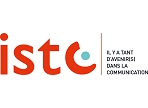Establishment
Teaching content
UE30
Training officer(s)
V.DURET, J.GOLDIAMOND
Présentation
Prerequisite
- Having a good command of the basic rules of institutional communication, and more specifically press relations techniques.
- Analysing a corporate issue to turn it into a communication issue.
- Knowing communication jobs and their scope.
- Being able to identify and analyse a global communication issue.
- Being able to develop a global communication strategy.
- Analysing a corporate issue to turn it into a communication issue.
- Knowing communication jobs and their scope.
- Being able to identify and analyse a global communication issue.
- Being able to develop a global communication strategy.
Goal
By the end of the course, students should be able to better justify their choices when it comes to communication actions, to build on a theory and on the code of ethics of public relations.
- Planning and budgeting for a public relations plan.
This course develops the following professional skills:
- Designing and presenting a through-the-line communication strategy: drawing it up, presenting and defending it (being able to justify the choices made).
- Learning about communication techniques, technologies and jobs.
- Planning and budgeting for a public relations plan.
This course develops the following professional skills:
- Designing and presenting a through-the-line communication strategy: drawing it up, presenting and defending it (being able to justify the choices made).
- Learning about communication techniques, technologies and jobs.
Presentation
- Definition and presentation of public relations officers, an underrated occupation. Recent evolutions of the job, stakes, goals.
- Public relations scope.
- Public relations: social technology of reconciliation.
- Identifying targets.
- “Tools” to carry out a public relations campaign.
- The Web, a lever of influence: Web 2.0 and its consequences.
- Method to develop a public relations strategy with measurable objectives.
- Considering a contemporary practice of public relations.
- Public relations recommendation.
- Practical case #1 micro-agencies / oral presentation with a PowerPoint / debrief.
- Practical case #2 micro-agencies / oral presentation with a PowerPoint / debrief.
- Practical case #3 (entirely in English) micro-agencies / oral presentation with a PowerPoint / debrief.
- Public relations scope.
- Public relations: social technology of reconciliation.
- Identifying targets.
- “Tools” to carry out a public relations campaign.
- The Web, a lever of influence: Web 2.0 and its consequences.
- Method to develop a public relations strategy with measurable objectives.
- Considering a contemporary practice of public relations.
- Public relations recommendation.
- Practical case #1 micro-agencies / oral presentation with a PowerPoint / debrief.
- Practical case #2 micro-agencies / oral presentation with a PowerPoint / debrief.
- Practical case #3 (entirely in English) micro-agencies / oral presentation with a PowerPoint / debrief.
Modalités
Forms of instruction
Active student participation is emphasised.
The course will comprise:
- A theoretical part: public relations theories and concepts. Readings will complement a number of theoretical points.
- A practical part with roleplaying exercises in micro-agencies in which students will analyse practical cases. Exercises and case studies will be followed by a group reflection.
Organization
| Type | Amount of time | Comment | |
|---|---|---|---|
| Face to face | |||
| 24,00 | |||
| Independent study | |||
| Travail personnel indicatif | 48,00 | ||
| Overall student workload | 72,00 | ||
Evaluation
- Micro-agencies assignments, oral presentation with a PowerPoint, challenge between micro-agencies.
- Individual file production: corporate public/press relations campaign; turning in a file and presenting it orally with a PowerPoint.
- Individual file production: corporate public/press relations campaign; turning in a file and presenting it orally with a PowerPoint.






